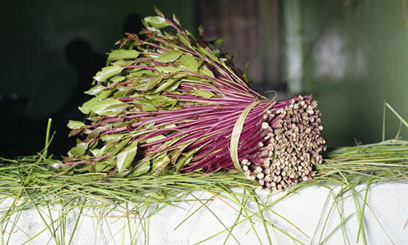Since the restoration of commerce, Kenya has shipped miraa worth over 8M to Somalia in less than a month. This is a significant reprieve for growers who had been severely hurt when Mogadishu placed a ban in 2019.
According to Felix Mutwiri, director of Miraa Pyrethrum and other Industrial Crops, the nation has so far exported 375 tonnes of the stimulant in the previous three weeks.
The limits on the amount of tonnage that Kenya is permitted to ship to Somalia, however, have reduced earnings. Nairobi was previously permitted to sell 40 tonnes every day, but at the moment, it is only permitted to ship up to 19 tonnes within the same time period.
Since starting exports again on July 24, Mr. Mutwiri reported that “we have so far exported 375,000 kilogrammes (375 tonnes).”
According to the new miraa legislation, the directorate has granted licences to roughly 48 traders for the export of the item. According to the new law, anyone who exports the crop without registering and receiving a licence faces a penalty of up to three years in prison or a fine of up to Sh5 million.
Following bilateral meetings between the presidents of Kenya and Somalia, a long-standing trade dispute was resolved, and the directorate began issuing export licences to miraa traders in July.
In Somalia, a kilogramme of miraa is currently selling for $23 (Sh2,730), which is still less expensive than the $25 it fetched before the market was shut down.
Ethiopia, which has been supplying miraa since Kenya was banned out, is competing with Kenya for the Somalia market.
Nyambene Miraa Trade Association (Nyamita) Chairman Kimathi Munjuri urged the government to take action so that the existing 19 tonnes per day of exporting miraa may be enhanced.
Since Mogadishu outlawed export of the stimulant as a result of a diplomatic dispute between Kenya and Somalia, traders have relied on the local market.

